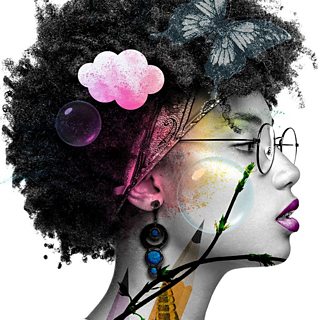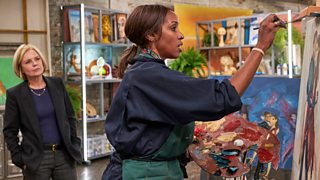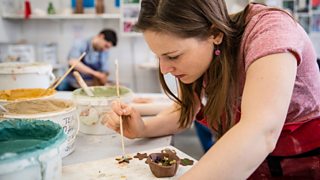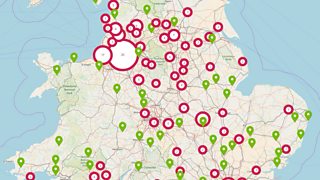Take the Feel Good Test to improve your wellbeing
8 May 2019
Groundbreaking new research has shown that taking part in even a small amount of creative activity can improve your wellbeing. And now researchers know what’s happening in the brain when you get creative. Take our new to discover how to reboot your creative hobbies.
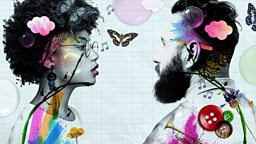
Good news for those juggling time pressures in today’s busy, modern life. According to research commissioned by 大象传媒 Arts, even the briefest time spent on a creative pastime such as painting, pottery or playing the piano has an impact on our wellbeing and emotions.
In the largest study of its kind, with almost 50,000 people taking part, last year's Great British Creativity Test - in partnership with UCL - explored for the first time how creative activities can help us manage our mood and boost wellbeing.
Led by Dr Daisy Fancourt, UCL Senior Research Fellow and former 大象传媒 Radio 3 New Generation Thinker, the research shows there are three main ways we use creativity as coping mechanisms to control our emotions:
- A distraction tool - using creativity to avoid stress.
- A contemplation tool – using creativity to give us the mind space to reassess problems in our lives and make plans.
- A means of self-development to face challenges by building up self-esteem and confidence.
Trying new creative activities is particularly good for our emotions and wellbeing. The research found that getting hands-on with something new and creative is important regardless of skill level - it is the taking part that counts.
Constantly learning and trying new creative pursuits is also more beneficial, as the survey revealed that doing an activity for more than ten years means it can become less effective at regulating negative emotions.
The findings also revealed that we get emotional benefits from even a single session of creativity and there are cumulative benefits from regular engagement. And when we’re facing hardships in our lives, creative activities are particularly beneficial for our emotions.
The Feel Good Test
The Great British Creativity Test findings are being used to help people identify which of the three coping mechanisms they use and this year, as part of the Get Creative Festival 2019, you can take the .
The test gives participants a Feel Good Formula to re-boot their creative habits - maximising the potential for each individual to improve wellbeing.
The Open University has developed a new website with the 大象传媒 and UCL to run the study. Mike Sharples, Emeritus Professor of Educational Technology at the OU, says: “At the end of the test, participants get a personalised Feel Good Formula with advice on how small changes to spare time activities could bring health benefits.”
Get your Feel Good Formula
-
![]()
Discover how getting creative could improve your wellbeing with a ten-minute test, then get your personalised Feel Good Formula.
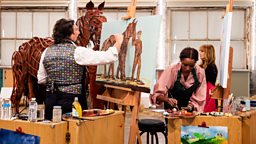
Interestingly, the survey revealed that nothing beats taking part in live creative activities that involve face-to-face social interaction, for example singing in a choir or taking part in a group painting class.
This study is the first to show the cognitive strategies the brain uses to regulate our emotions when we鈥檙e taking part in creative activitiesDr Daisy Fancourt
However, virtual creative experiences can also help and seem to have some benefits but these are less strong and emotionally beneficial than experiences which include face-to-face interaction with others.
To explore this, the team worked with composer Eric Whitacre to compare responses from the Great British Creativity Test on live group singing, with responses from participants who had taken part in a virtual choir, singing remotely from home. Both groups experienced benefits for their emotions, although the strongest results came from live singing.
Dr Daisy Fancourt says: "This study is the first to show the cognitive strategies the brain uses to regulate our emotions when we’re taking part in creative activities. While previous studies have shown the strong link between creative activities and emotions, we've not been sure about how this has been happening. It is a really exciting finding and we'll be sharing our data with other researchers across the UK."
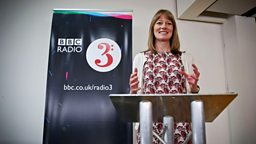
Related Links
More information on Get Creative Festival
-
![]()
Get Creative Festival 2019
The 大象传媒's online home for the Festival, with links to all programmes and features.
-
![]()
What's happening?
Everything you need to know about the Get Creative Festival 2019.
-
![]()
Visit the special interactive map with details of hundreds of events.
-
![]()
All you need to know about the campaign to celebrate everyday creativity.
